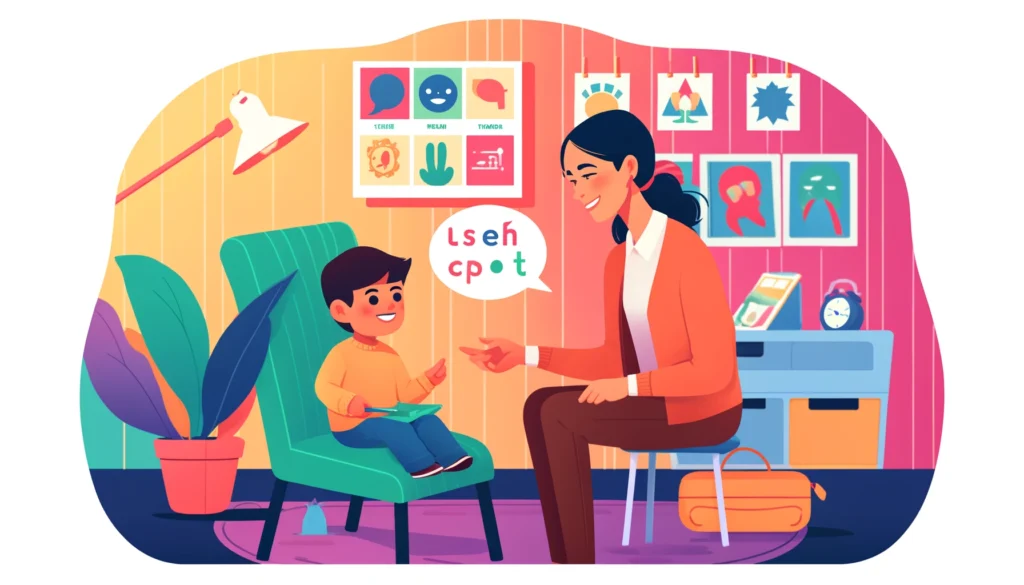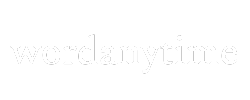“Language as a Tool for Personal Development” emphasizes how language is a powerful tool that can be harnessed for personal growth and development. From shaping our thoughts and beliefs to our actions and interactions with others, language plays a significant role in how we perceive ourselves and the world around us. It not only influences our communication but also affects our cognitive abilities, enhancing our problem-solving and critical-thinking skills.
By consciously refining our language use, we can improve our ability to articulate thoughts clearly, build better relationships, and navigate complex social situations more effectively. Ultimately, mastering the power of language can lead to increased self-awareness and a more profound understanding of life’s nuances, unlocking new avenues for personal and professional enrichment.
By intentionally using language to transform our internal narrative, we can unlock our true potential and achieve personal growth beyond what we ever thought possible.
In this article, we’ll explore the many ways in which language can be used as a tool for personal development, from learning a new language to using language to advocate for our needs and desires.
Language for Personal Transformation
Language can be used as a powerful tool for personal transformation. The way we use language can shape our thoughts, beliefs, and actions and ultimately impact the trajectory of our lives. By intentionally using language to transform our inner dialogue, we can unlock new possibilities for growth and development.
One way to use language for personal transformation is to identify and reframe negative self-talk. Reframing negative thoughts and beliefs is a powerful way to shift our mindset and achieve greater personal growth. By intentionally replacing negative self-talk with positive affirmations, we can cultivate a more optimistic and empowered outlook.
Another way to use language for personal transformation is to set intentional language goals. By identifying the words and phrases that resonate with our values and goals, we can use language as a tool for manifesting our desires. Whether it’s setting daily affirmations or practicing positive self-talk, intentional language use can help us achieve greater personal transformation.
Language for Personal Transformation: Examples
“I am not a failure, I am still learning and growing.”
“I am capable of achieving my goals and dreams.”
“I am worthy of love and respect.”
These are just a few examples of the powerful language we can use to transform our inner dialogue and achieve personal growth.
Ultimately, language is a reflection of our inner world. By intentionally using language to shape our thoughts, beliefs, and actions, we can unlock our potential and achieve greater personal transformation.

Harnessing Language for Personal Growth
Language has immense potential to facilitate personal growth. Through intentional language use, we can reframe negative thoughts, set goals, and cultivate positivity. Here are some practical tips and strategies for harnessing the power of language to unlock your potential:
- Use positive language. Our thoughts and beliefs shape our reality. By intentionally using positive language, we can shift our mindset and cultivate a more optimistic outlook.
- Reframe negative thoughts: When negative thoughts arise, try to reframe them in a more positive light. For example, instead of thinking, “I can’t do this,” try thinking, “I’m not there yet, but I’m working towards it.”
- Set intentional language goals: Make a conscious effort to use language that aligns with your values and aspirations. Set goals for yourself, such as using more inclusive language or becoming more articulate in your communication.
- Be mindful of self-talk. The way we talk to ourselves has a significant impact on our self-perception. Make a conscious effort to speak to yourself kindly and compassionately.
By embracing intentional language use, we can cultivate a more positive and empowered sense of self. Remember, a language is a tool for personal development that is accessible to all of us.
Language Skills and Personal Development
Learning a new language is not only a valuable skill, but it can also have a significant impact on personal development. In addition to the cognitive benefits of language learning, such as improved memory and multitasking abilities, it can also broaden one’s horizons and foster personal growth.
| Benefits of Language Learning for Personal Development |
|---|
| Increases empathy and cultural understanding |
| Enhances communication skills |
| Boosts confidence and self-esteem |
Learning a new language can also provide opportunities for personal growth through the challenges it presents. Overcoming language barriers and stepping outside of one’s comfort zone can lead to increased self-awareness and self-growth.
Whether it’s for personal or professional reasons, investing time and effort into learning a new language can have a positive impact on personal development. So why not leap and start learning a new language today?

Self-Improvement through Language Learning
Learning a new language is not just a means of communication but also a powerful tool for personal growth and self-improvement. Here are some ways in which language learning can help individuals achieve personal development:
Increased Empathy
Learning a new language can provide a window into a different culture and way of life. This exposure can lead to increased empathy and a broader perspective on the world. As individuals learn to communicate in a new language, they gain a deeper understanding of the cultural nuances and intricacies that shape communication in different parts of the world.
Improved Communication Skills
Language learning involves more than just memorizing vocabulary and verb conjugations. It also involves understanding the nuances of communication and developing the skills necessary to communicate effectively. Individuals who learn a new language often find that they become better communicators in their native tongue as well.
Enhanced Cultural Understanding
Language is closely tied to culture, and learning a new language can lead to a greater understanding and appreciation of different cultures. Individuals who learn a new language gain insights into the customs, traditions, and values of different cultures, which can lead to greater cross-cultural understanding and appreciation.
Boost in Confidence
Learning a new language can be a challenging and rewarding experience. As individuals work to master a new language, they develop a sense of accomplishment and pride that can boost their confidence and self-esteem. This can lead to personal growth and empowerment as individuals gain the confidence to take on new challenges and pursue their goals.
Overall, language learning is a powerful tool for personal development and self-improvement. Whether you are looking to improve your communication skills, gain a deeper understanding of different cultures, or boost your confidence and self-esteem, learning a new language can help you achieve your goals.

Using Language for Personal Empowerment
Language is a powerful tool for personal empowerment and self-advocacy. By using language intentionally, individuals can assert themselves, set boundaries, and advocate for their needs and desires.
One way to use language for personal empowerment is to practice saying “no” when necessary. Many individuals struggle with saying “no” out of fear of offending others or being seen as uncooperative.
However, setting boundaries is essential for maintaining self-respect and ensuring that personal needs are met. By practicing saying “no” clearly and respectfully, individuals can assert themselves and become more confident in their ability to advocate for themselves.
Another way to use language for personal empowerment is to practice positive self-talk. Negative self-talk can be detrimental to personal growth and development, while positive self-talk can increase self-esteem and motivation.
By using language to affirm one’s worth and abilities, individuals can become more empowered and confident in their daily lives.
The Power of “I” Statements
“I” statements are another powerful tool for personal empowerment. Instead of making accusatory or blaming statements, individuals can use “I” statements to express their needs and feelings in a clear and non-confrontational manner.
For example, instead of saying, “You never listen to me,” one could say, “I feel unheard when I’m speaking to you.” By framing statements in terms of one’s own experiences and feelings, individuals can become more effective communicators and advocate for their needs without causing unnecessary conflict.
Overall, language is a crucial tool for personal empowerment and self-advocacy. By using language intentionally and practicing positive self-talk, individuals can become more confident in their abilities and assert themselves in their daily lives.
Achieving Success with Mindful Language Use
Mindful language use can be a powerful tool in achieving success. By being intentional in our language, we can communicate our goals and desires effectively and increase our chances of success.
Clarity is key when it comes to mindful language use. By clearly stating our goals and intentions, we can avoid miscommunication and ensure that others understand what we are striving for. Consistency is also important, as using consistent language can help to reinforce our goals and keep us on track.
Another important aspect of mindful language use is intentionality. By setting intentional language goals, we can actively work towards our desired outcomes. For example, if we want to become more confident in public speaking, we can set a goal of using assertive language when presenting.
Examples of individuals who have achieved success through mindful language use abound. Athletes often use positive self-talk to boost their confidence and maintain focus during competition. Business leaders use clear and direct language to convey their vision and inspire their employees.
By using language mindfully, we can increase our chances of success in any area of life. Whether we are striving for personal growth, professional success, or simply better communication with those around us, intentional language use can be a powerful tool.

Language and Personal Development: Common Misconceptions
When it comes to language and personal development, many misconceptions can hold us back from unlocking our full potential. In this section, we will address some of the most common myths and misconceptions about language learning and personal growth.
Myth #1: The “Perfect” Language Learner
One of the biggest myths surrounding language learning is the idea of the “perfect” language learner. This myth suggests that only certain people have the natural talent or ability to learn a new language quickly and easily.
The truth is that anyone can learn a new language with practice, persistence, and the right resources. Language learning is not about being perfect, but about making progress and learning from mistakes along the way.
Myth #2: Fluency Equals Success
Another common misconception about language learning is that fluency is the ultimate goal and that achieving fluency is a marker of success.
While fluency can be a valuable goal for some language learners, it is not the only measure of success. Learning a new language can provide a range of benefits, from improving cognitive function to enhancing cultural understanding. Success in language learning should be defined by personal goals and aspirations, not by external markers of achievement.
Myth #3: Language Learning Is Only for the Young
Many people believe that language learning is only for the young and that older adults are less capable of learning a new language. However, research has shown that language learning can be beneficial at any age.
Older adults may have certain advantages when it comes to language learning, such as more life experience and a greater motivation to learn. Learning a new language can also help keep the brain active and healthy as we age.
Overall, it’s important to recognize that the myths and misconceptions surrounding language learning and personal development can limit our growth and potential. By challenging these myths and embracing the power of language for personal transformation, we can unlock new opportunities and achieve success on our terms.
Conclusion
Personal growth and self-development are possible through language learning. By acquiring new language skills, we can develop ourselves in many ways. We can improve our communication skills, broaden our cultural horizons, and become more confident and independent individuals.
Language learning is a journey that can take us to new and exciting places. It can challenge us and help us grow in ways we never thought possible. So why not embark on your language-learning journey today? Who knows where it might take you?
FAQs
What is the best age to start learning a new language?
The best age to start learning a new language is debatable. Some studies suggest that children are better at language learning than adults, while others indicate that adults have advantages such as prior linguistic knowledge and better cognitive skills.
Ultimately, it’s never too late to start learning a new language, and the benefits of language learning can be reaped at any age.
How much time should I dedicate to language learning?
The amount of time it takes to learn a language varies depending on factors such as the language itself, the learner’s prior knowledge and skills, and the level of fluency desired.
However, as a general rule of thumb, regularly dedicating at least 30 minutes a day to language learning can lead to significant progress over time.
What are some affordable ways to learn a new language?
There are many affordable ways to learn a new language. Some options include using free language learning apps, taking advantage of library resources such as language learning books and CDs, finding language exchange partners online or in person, and attending language learning meetups or events in your community.
What are some tips for staying motivated during language learning?
Staying motivated during language learning can be challenging, but some tips for keeping motivation high include setting achievable goals, tracking progress, finding a language learning community for support and accountability, and focusing on the enjoyment of the learning process rather than solely on the end goal of fluency.
What if I don’t have time to commit to language learning?
If you don’t have a lot of time to commit to language learning, it’s still possible to make progress. Even dedicating a few minutes a day to practicing vocabulary or listening to language podcasts can be beneficial. It’s also important to remember that language learning is a long-term process, and progress can be made even with small amounts of consistent effort.
What are the cognitive benefits of language learning?
Language learning has been shown to have numerous cognitive benefits, including improving memory, increasing attention and focus, enhancing problem-solving skills, and even delaying the onset of age-related cognitive decline.
Can learning a new language help me in my career?
Learning a new language can be a valuable asset in many careers, particularly those with international or multilingual aspects. It can also help with interpersonal communication and cultural understanding, both of which are valuable skills in any career.
Is it necessary to become fluent in a language to see personal development benefits?
No, it’s not necessary to become fluent in a language to see personal development benefits. Even basic language knowledge can facilitate personal growth by increasing empathy, enhancing communication skills, and broadening cultural understanding.










